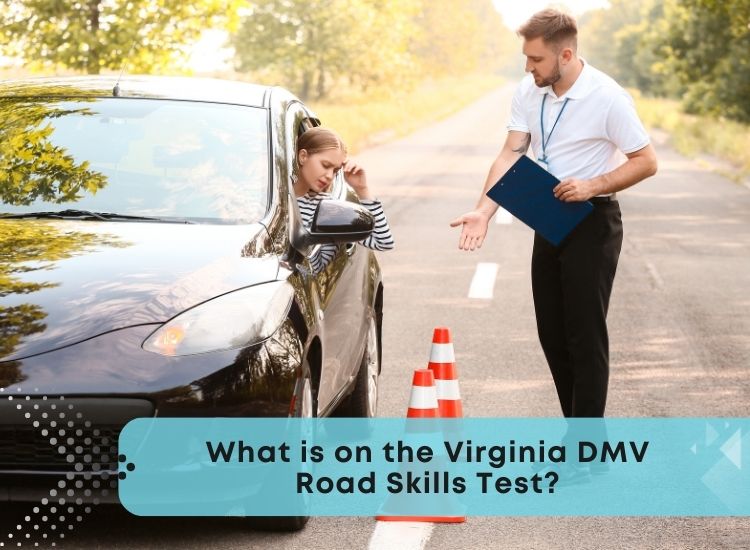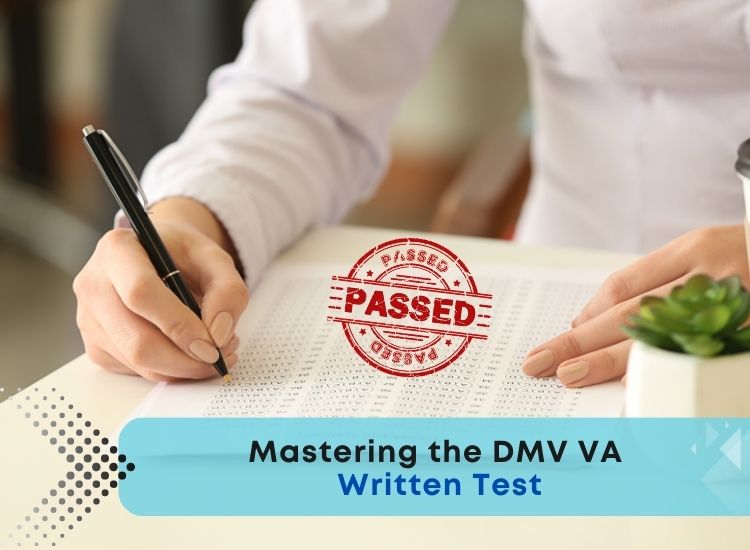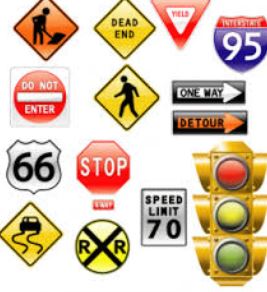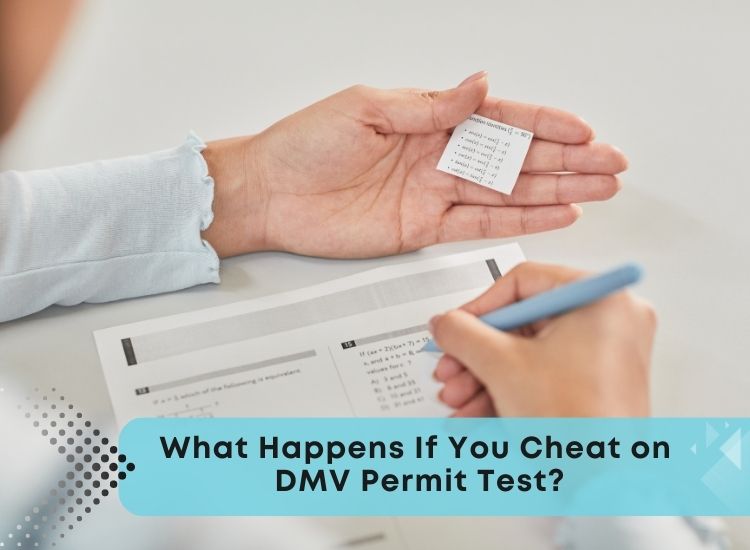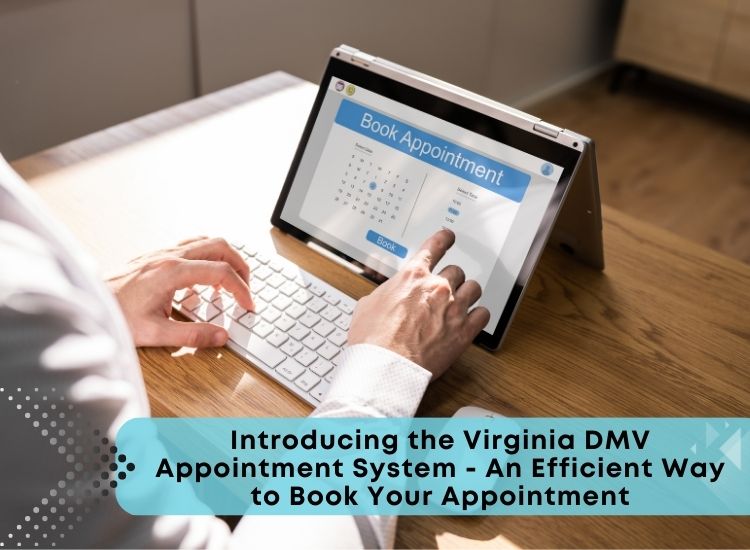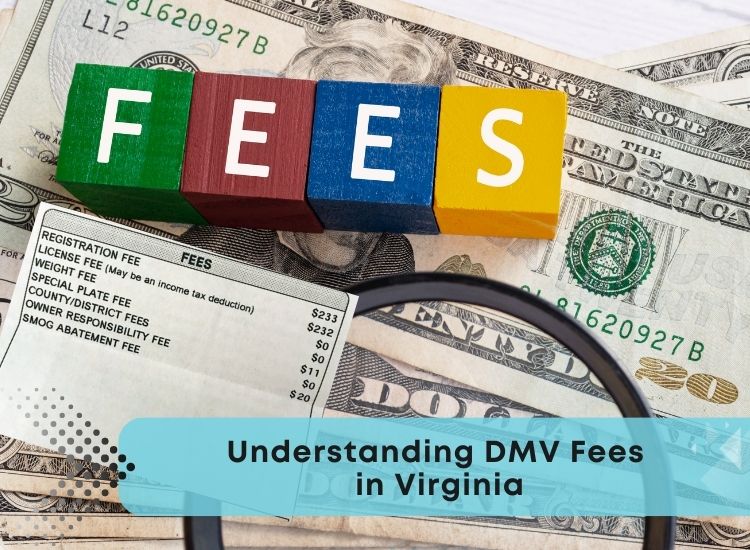What is on the Virginia DMV Road Skills Test?
The Virginia DMV road skills test is a crucial step for obtaining a driver’s license in Virginia. It is designed to assess an individual’s ability to operate a motor vehicle safely and confidently on public roads. In this article, we will explore the various components of the Virginia DMV road skills test, provide tips for preparation and success, and discuss common mistakes to avoid.
Obtaining a driver’s license is an exciting milestone in one’s life, but it comes with the responsibility of ensuring road safety. The Virginia DMV road skills test plays a vital role in determining whether an individual is ready to navigate the roads independently. By evaluating essential driving skills, the test aims to ensure that new drivers are competent and capable of handling various traffic scenarios. Let’s delve into the details of the Virginia DMV road skills test and understand what it entails.
Overview of the Virginia DMV Road Skills Test
The Virginia DMV road skills test is designed to assess both the theoretical knowledge and practical skills of aspiring drivers. It consists of two main parts: a written knowledge test and a road skills test. In this article, we will focus on the road skills test which is a hands-on evaluation of an individual’s ability to operate a motor vehicle safely.
Purpose of the Test
The primary purpose of the road skills test is to ensure that new drivers possess the necessary skills to drive safely on Virginia’s roads. It assesses an individual’s ability to follow traffic laws, make informed decisions and handle various driving situations. By evaluating crucial driving maneuvers and behaviors, the test helps identify any areas that may require improvement before granting a driver’s license.
Test Format and Requirements
The road skills test is typically conducted at a Virginia DMV office or an authorized testing location. To be eligible for the test, applicants must have a valid learner.
Preparing for the Virginia DMV Road Skills Test
To increase your chances of success on the Virginia DMV road skills test, thorough preparation is essential. Follow these steps to ensure you’re ready for the test:
Study the Virginia Driver’s Manual
The Virginia Driver’s Manual is a valuable resource that provides essential information about traffic laws, road signs and safe driving practices. Study the manual thoroughly to familiarize yourself with the rules and regulations that will be assessed during the road skills test.
Practice Driving Skills
Practice makes perfect when it comes to driving. Spend ample time behind the wheel to refine your driving skills. Focus on areas such as steering control, braking, accelerating smoothly, and maintaining a proper driving posture. Practice in different weather conditions and various road environments to enhance your adaptability.
Comprehensive Guide to Passing the Virginia Road Test
Understand Common Test Maneuvers
The road skills test in Virginia often includes specific maneuvers that you need to master. These maneuvers may include parallel parking, three-point turns, lane changes, and backing up in a straight line. Familiarize yourself with these maneuvers and practice them extensively to build confidence.
Get Familiar with the Test Location
Knowing the test location in advance can help alleviate anxiety on the day of the test. Visit the testing site or drive around the area to become familiar with the roads, intersections, and any potential challenges you might encounter during the test. This familiarity will help you feel more comfortable and confident during the actual examination.
Test Day: What to Expect
On the day of your road skills test, it’s important to be prepared and aware of what to expect. Here’s an overview of what you can anticipate:
Necessary Documents and Equipment
Ensure you bring all the required documents, including your learner’s permit, proof of identity, and proof of residency. Additionally, check that your vehicle is in proper working condition, with functioning headlights, brake lights, turn signals, and windshield wipers.
Check-In Process
Arrive at the test location early to complete the necessary check-in procedures. You may need to provide your identification documents, undergo vision screening, and pay the applicable fees. Follow the instructions of the DMV personnel and be patient throughout the process.
Overview of the Test Procedure
The road skills test usually lasts for approximately 20-30 minutes. An examiner from the DMV will accompany you in the vehicle and evaluate your driving skills. The examiner will provide clear instructions and assess your performance based on specific criteria.
Handling Test Nerves
Nervousness is natural before any test, but it’s important to stay calm and focused during the road skills test. Take deep breaths, follow the examiner’s instructions carefully, and rely on your training and practice. Remember that mistakes happen, and the examiner is primarily looking for safe driving skills and adherence to traffic laws.
Understanding the Test Components
The Virginia DMV road skills test assesses several components to determine your driving abilities. It’s crucial to understand these components to prepare effectively:
Basic Vehicle Control
The examiner will evaluate your ability to control the vehicle smoothly and safely. This includes starting and stopping the vehicle, accelerating and decelerating, and steering control.
Parking Maneuvers
Parallel parking, perpendicular parking, and angle parking are common parking maneuvers assessed during the test. You’ll need to demonstrate your ability to park accurately and safely within designated spaces.
Intersection and Lane Changing
The test will assess your understanding of right-of-way rules at intersections, as well as your ability to change lanes safely and appropriately. Proper signaling, observation, and decision-making are key factors in these maneuvers.
Defensive Driving Skills
Being aware of your surroundings, anticipating potential hazards, and reacting appropriately are vital defensive driving skills. The examiner
Defensive Driving Skills
Being aware of your surroundings, anticipating potential hazards, and reacting appropriately are vital defensive driving skills. The examiner will assess your ability to maintain a safe following distance, check blind spots, and respond to unexpected situations on the road.
Emergency Stops and Maneuvers
Your proficiency in performing emergency stops, such as sudden braking, and emergency maneuvers like evasive steering, will be evaluated. These skills demonstrate your ability to handle critical situations and prevent accidents.
Special Requirements
If you’re applying for a specific type of license, such as a motorcycle or commercial vehicle license, there may be additional components to the road skills test. Familiarize yourself with the specific requirements for your desired license and practice accordingly.
Tips for Passing the Virginia DMV Road Skills Test
While the road skills test can be nerve-wracking, following these tips will increase your chances of passing:
Follow Traffic Rules and Regulations
Adhere to all traffic laws, including speed limits, stop signs, and traffic signals. Demonstrate your knowledge of right-of-way rules and proper signaling techniques.
Maintain Proper Vehicle Control
Demonstrate smooth vehicle control by accelerating, decelerating, and steering smoothly. Use the appropriate hand positions on the steering wheel and maintain a comfortable and safe driving posture.
Use Mirrors Effectively
Regularly check your mirrors to stay aware of your surroundings. Use them before changing lanes, making turns, or performing maneuvers. Effective mirror usage shows your attentiveness and ability to make informed decisions.
Communicate with Other Drivers
Use turn signals, hand signals, and eye contact to communicate your intentions with other drivers on the road. Clear communication fosters safer driving conditions and helps prevent misunderstandings.
Observe and Anticipate Potential Hazards
Stay vigilant and scan the road ahead, checking for potential hazards like pedestrians, cyclists, and other vehicles. Anticipate the actions of other road users and be prepared to respond accordingly.
Common Mistakes and How to Avoid Them
To increase your chances of success, be aware of common mistakes made during the road skills test and take steps to avoid them:
Failing to Signal Properly
Always use your turn signals in advance when making turns or changing lanes. Failing to signal properly can result in point deductions during the test.
Not Checking Blind Spots
Ensure you check your blind spots before changing lanes or making any maneuvers. Failure to do so can lead to collisions or near misses, and it will be marked as a mistake during the test.
Speeding or Driving Too Slowly
Maintain a speed appropriate for the road conditions and adhere to posted speed limits. Avoid driving too fast or too slowly, as both can indicate a lack of control and awareness.
Improper Lane Positioning
Maintain proper lane position while driving, especially during turns or lane changes. Avoid straddling lanes or drifting too close to the center or edge of the roadway.
Poor Observation Skills
Demonstrate attentive observation skills by regularly scanning your surroundings. Failure to observe and react to potential hazards can lead to accidents and will be marked as a mistake during the test.
Post-Test Procedures
After completing the road skills test, you will receive your test results and feedback from the examiner. It’s important to understand the post-test procedures:
Receiving Test Results
The examiner will provide you with immediate feedback on your performance and inform you whether you have passed or failed the road skills test. If you pass, you can proceed with the next steps to obtain your driver’s license.
Understanding Test Scoring
The road skills test is scored based on a predetermined set of criteria. Familiarize yourself with the scoring system to understand how your performance will be evaluated. Different maneuvers and aspects of driving carry different weight in the scoring process.
Driving Test Scored in Virginia: A Comprehensive Guide
Retaking the Test if Necessary
If you fail the road skills test, you will have the opportunity to retake it after a designated waiting period. Use the feedback provided by the examiner to identify areas that require improvement and focus on those areas during your practice sessions.
Conclusion
The Virginia DMV road skills test is an important step towards obtaining a driver’s license. It evaluates your ability to safely operate a motor vehicle and make informed decisions while on the road. By adequately preparing and practicing the necessary skills, you can increase your chances of passing the test and becoming a confident and responsible driver.
Remember to study the Virginia Driver’s Manual, practice driving skills, understand common test maneuvers, and get familiar with the test location. On the day of the test, ensure you have all the necessary documents and equipment and remain calm throughout the process. During the test, demonstrate proper vehicle control, effective use of mirrors, and defensive driving skills. Avoid common mistakes such as improper signaling, neglecting blind spots and speeding. After the test, understand your results and use the feedback to improve if necessary.
By approaching the road skills test with dedication and preparation, you’ll be one step closer to achieving your goal of becoming a licensed driver in Virginia.
Frequently Asked Questions
1. Can I use my own vehicle for the Virginia DMV road skills test?
Yes, you can use your own vehicle for the road skills test as long as it meets the required safety standards. The vehicle should have functioning headlights, brake lights, turn signals, and windshield wipers. It’s important to ensure that your vehicle is in good working condition and complies with all the necessary requirements set by the Virginia DMV.
2. How many times can I take the road skills test if I fail?
If you fail the road skills test, you can retake it after a waiting period, which is typically 15 days. During this waiting period, it’s a good idea to practice and improve your driving skills. Take the time to identify the areas where you need improvement based on the feedback provided by the examiner.
3. Will I automatically fail the test if I make a small mistake?
Making a small mistake during the road skills test may not necessarily result in an automatic failure. The examiner evaluates your overall performance throughout the test, taking into consideration factors such as your ability to follow traffic rules, demonstrate safe driving practices, and handle various driving situations. It’s important to strive for accuracy and minimize mistakes, but a minor error may not necessarily lead to an automatic failure.
4. Is it necessary to parallel park during the road skills test?
Yes, parallel parking is a common maneuver that is assessed during the road skills test. It demonstrates your ability to maneuver the vehicle safely and accurately into a parking space alongside the curb. It’s important to practice this skill to ensure proficiency, as improper parallel parking can result in deductions during the test. Familiarize yourself with the proper technique and practice in various parking scenarios to build confidence.
5. Can I reschedule my road skills test if I cannot make it on the scheduled date?
Yes, you can reschedule your road skills test if you are unable to make it on the scheduled date. To reschedule, you need to contact the Virginia DMV and provide a valid reason for the change. It’s important to notify them in advance and follow their instructions regarding the rescheduling process. Make sure to have a valid reason, such as illness or emergency, and be prepared to provide any necessary documentation to support your request.
Resources I Use
Resource 1: DMV Virginia: http://www.dmvNOW.com
Resource 2: Virginia Driver’s Manual: https://www.dmv.virginia.gov/webdoc/pdf/dmv39.pdf
Resource 3: DMV Testing: https://www.dmv.virginia.gov/dmv-manuals/#/sections/manual/1
Resource 4: Document needed: https://www.dmv.virginia.gov/webdoc/pdf/dmv141.pdf

